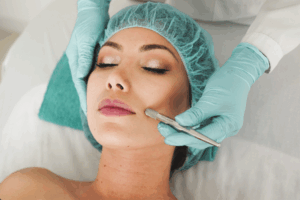
Dermatologists Share Key Skincare Tips for Preventing and Treating Contagious Skin Problems During the Monsoon
With the high humidity and constant dampness of the monsoon season creating ideal conditions for fungal infections, ringworm, scabies, and acne, dermatologists recommend a proactive approach to skin care to protect against and manage these issues.
Maintaining hygiene is the first line of defense. Gently cleanse your skin twice a day with a mild, pH-balanced face or body wash to remove oil, sweat, dirt, and bacteria without stripping the skin. Focus on cleaning and drying sweat-prone areas such as the underarms, groin, neck folds, and feet to prevent fungal growth. Avoid harsh soaps and never share personal items like towels, combs, or clothing, which can spread infections such as ringworm or scabies.
Moisture control is essential during this season. Apply antifungal powders to damp areas to absorb sweat and discourage fungal buildup. If rashes or itching occur, use medicated creams prescribed by a dermatologist rather than self-treating with over-the-counter steroids.
Choose skin-friendly products. Lightweight, oil-free moisturizers with hydrating ingredients like glycerin or hyaluronic acid help maintain hydration without clogging pores. Steer clear of heavy creams and oily formulations, which can aggravate acne and fungal infections. Always apply a matte, water-resistant sunscreen with at least SPF 30—even on cloudy days—to protect against UV damage and pollution, while supporting your skin’s natural barrier.
Breathable clothing can also make a difference. Fabrics like cotton and linen allow air circulation and reduce sweat retention, whereas synthetic materials trap heat and moisture, increasing the risk of irritation and infection.
Dermatologists also advise avoiding excessive makeup and harsh exfoliation during this season. Use minimal, non-comedogenic cosmetics and exfoliate gently two to three times weekly with mild chemical exfoliants such as salicylic acid or alpha hydroxy acids to prevent clogged pores and remove dead skin cells.
Internal care matters as much as external care. A balanced diet rich in fresh fruits, vegetables, and sufficient water supports healthy skin, while oily, processed, and sugary foods can trigger inflammation and acne flare-ups.
Prompt medical consultation is crucial if you notice persistent rashes, intense itching, or worsening infections. Avoid using strong steroid creams without professional guidance.
Lastly, keep sweat under control by patting your skin dry with a clean towel after bathing and changing out of damp clothes immediately. Moisture-absorbing products for shoes and clothing can help keep problem areas dry.
By combining proper hygiene, moisture management, suitable skincare, breathable clothing, and timely medical advice, you can safeguard your skin’s health and reduce the risk of contagious skin conditions during the monsoon season.
More than news- Its Icegate

